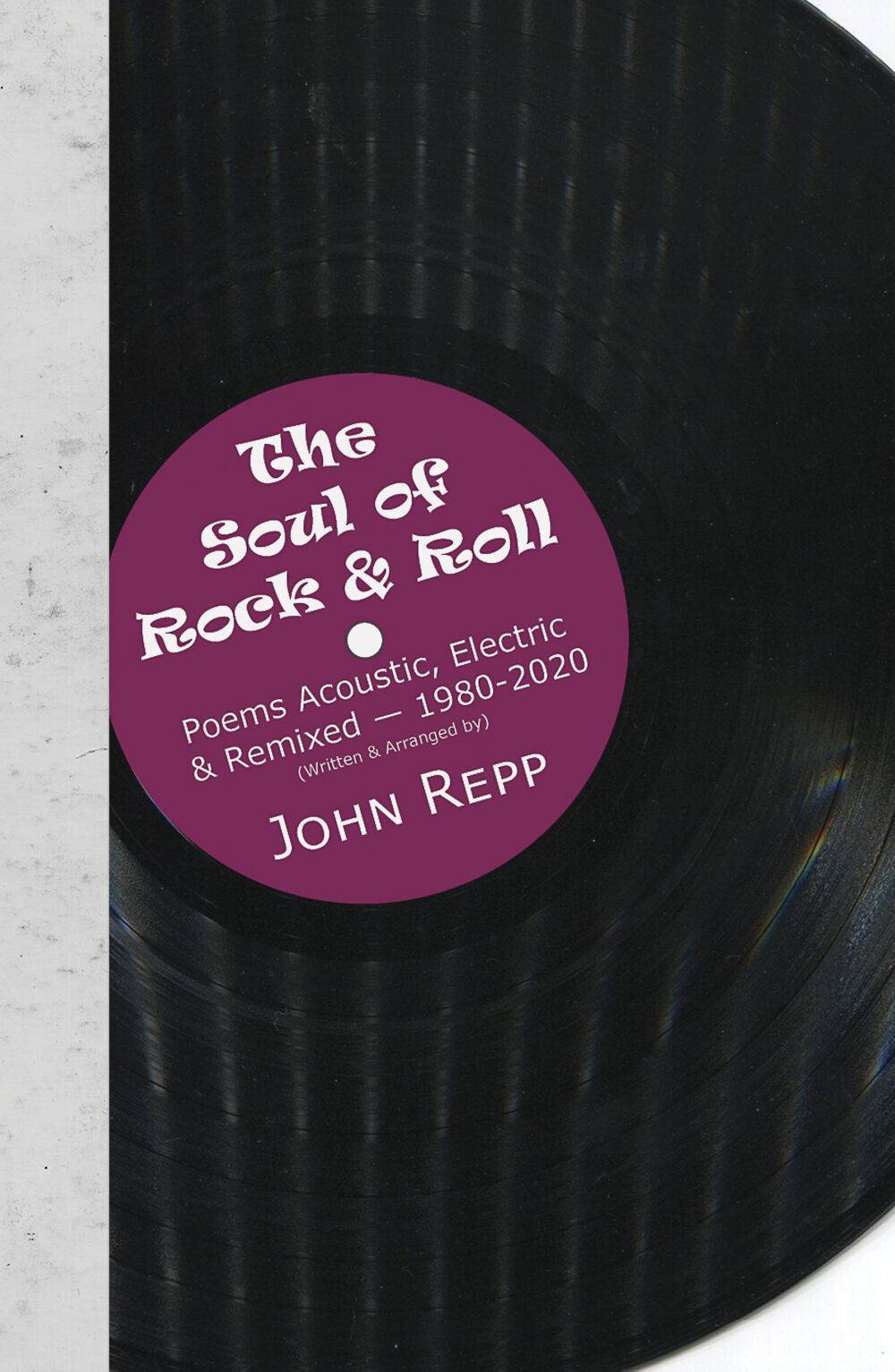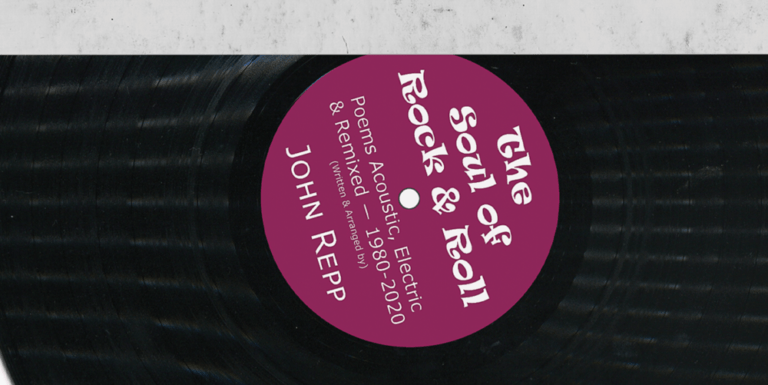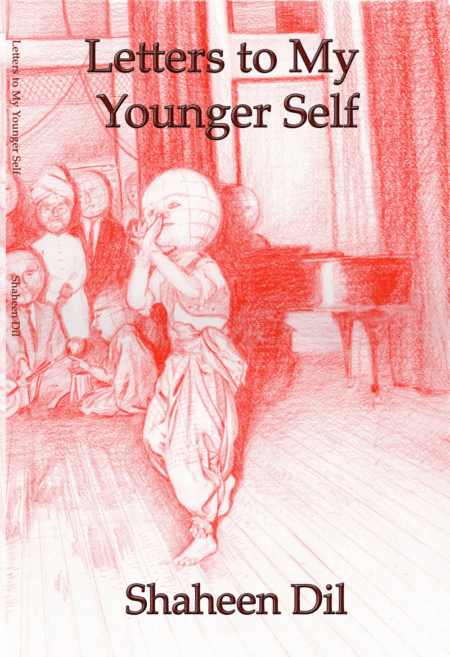About the Author: John Repp is a poet, fiction writer, essayist, and book critic living in Erie, Pennsylvania. In addition to The Soul of Rock & Roll, his books include Fat Jersey Blues, winner of the 2013 Akron Poetry Prize from the University of Akron Press and Thirst Like This, winner of the Devins Award from the University of Missouri Press. He holds an MFA from the Writing Program at the University of Pittsburgh, spent a year as Visiting Writer in Residence at Carnegie Mellon University, lived for various lengths of time in Oakland, Squirrel Hill, Greenfield, Shadyside, and Point Breeze, and for eighteen months way back in the mid-1980s coordinated the Hemingway’s Reading Series.
More Info
From the Publisher: “If one goes Googling John Repp, one soon learns that he is a native of the Pine Barrens region of New Jersey (a location that often appears in his work), but has since lived many places, attended many universities (picking up an MFA along the way), has worked at seemingly every sort of job from gravedigging to teaching creative writing (so at least some of them useful), and has an eclectic and eccentric list of interests. And that he has, over the past forty years, written many books of poetry and prose, garnering awards and critical recognition along the way. All of which finds its way into The Soul of Rock & Roll, which serves as a “greatest hits” selection from those four decades of poetry. Such an outsized life has yielded a commensurately wide-ranging body of work, and any attempt to gist it in few words would do it poor service; but a good point of entry is “The Tiny-Montgomery-Mother-Poem” in which Dylan’s The Basement Tapes plays in the background while Repp’s mother is dying, and his family rails at him for speaking of such things: “They say These things are private. Why do you keep / making these private things public? It’s so long ago.” Yes, he writes of private things, and of things from long ago, from a time of innocence and the rush to lose it, documenting not merely his life but that of his generation, a generation for which rock & roll provided the soundtrack and the thrum sounding throughout these pages, love and loss amid the worn crackle and hiss.It may be true, as William Carlos Williams observed, that it is hard to get news from poetry, but it’s a good source of history, of understanding how we arrived where we are. Repp reports in one poem here that he learned of the Triangle Shirtwaist Fire in part from a Robert Pinsky poem. Now it is his turn to educate us, to share the lessons from his life and times. Not all may be the sort of things that people die for want of knowing (to complete the Williams quotation), but they can be comforting – and what a needful thing that is for these times. “Who doesn’t climb from the mere world” he asks in “Ovaltine” – with the emphasis on mere, lest we take our lives too seriously, reminding us to dream –
to where Ponce de Leon and Wyatt Earp rein their horses
while you spur Silver to column’s head? The wind hits you first,
wind unheard before that, nothing ahead but fire and new mountains.”
Author Site
“A quiet brilliance drives The Soul of Rock & Roll, a quiet that ‘blasts that Chevy/into black light/sucked into dusk.’ With 10-gauge steel strings, Repp solos electric in images that shred until we are heart-deep in the bodies of real people. He’s an intellectual, and he’s salt-of-the-earth—an endangered species. ‘I want Lorca un-shot & singing,’ he says—who else can take us from Iggy Pop to Apollo on the ‘ancient road home’ with such soul? Repp’s voice—underrated and never overstated—bottleneck-slides the heart of night and makes us believe in the spirit of living again—it’s that good.” —Jan Beatty, author of The Body Wars (University of Pittsburgh Press)
Van Morrison Plays Pittsburgh
He’s sworn off arenas—no more limos, finger sandwiches,
ritual encores, contractural riders, cocaine fandango,
all those years of Domino! Domino! Domino!
so Frank and I pitch a date in The Back Room,
a hundred, hundred and fifty at the most.
Beer, pretzels, they’ll know who Yeats is.
Sure, OK, what the hell. On the way in
from the airport, he wonders if we like
the Symbolists & what about all these
bullshit modern visions & my God, what is it
with Madonna? We arrive, he meets Ellen, Ed, Judy,
Chuck, Nancy. Kevin pumps his hand Veedon Fleece!
what a record! No, boring, a long time ago.
The place fills, people wonder who he is,
does he have a book, where’s the waiter.
Morose, fat, mumbling, Van doodles
in a red notebook, puts back an Iron City.
Frank does the intro with a Van the Man! flourish
a woman chortles Christ, a guitar? This isn’t 1961
Van plucks and ponders the A string Bruce proffers his beret
Jimmy pitter-pats “Wipe Out” on his thigh Van slumps
to the stool tugs his fedora low a feedback zap
& he’s off a short George Herbert a Hopkins six-liner
sung in his “Crazy Love” register the crowd warms a bit
another Herbert a broken-off Yeats someone yells Donne!
Do some Donne! a group in the back chants Blake Blake Blake
& he growls growls turns a Donne sermon into a twelve-bar blues
that rides out on two dozen satanic yodels & a held E
comely & azure enough to head Odysseus homeward
then he’s into a “Sailing to Byzantium” that’s better than Them
chunking out “Gloria” in the fueled-up Belfast wee hours
better than Fats Navarro (God rest his holy embouchure)
better than Holly Aretha Jackie Wilson
better than Ray Charles’ autistic amnesiac howl help me
help me now come on people on on on down
by the pylons by the pylons by the pylons
where the lion sings in the demon night
the lion sings in the demon night
we demons laugh in the singing night
we demons laugh in the singing night
For Fanny Goldberg, Who Asked God to Bless Me
When I unfroze her pipes, Fanny said Honey,
I don’t know how you knew we had trouble,
but may God bless you. Ah, Fanny, voice I play
my Haydn to soften, I know about the pissant
landlord, the Kosher Mart checker with breath
like bad meat, son David drunk in the morning,
his Catholic bitch of a wife doing nothing
about the baby’s eyes though Dr. Klein said
he’ll go blind without fixing. I’ve memorized
the menu at Poli’s, the endless insults
of that putz Isaac, a litany of pains dusted
with such pulverized joys even Vivaldi
can’t sweeten the sob I keep tasting.
She’ll see Jerusalem this year if her trouble
let’s up. I imagine Fanny and her daughter
tromping around the Holy Land as they do
up Murray Avenue—arm-in-arm, cocked forward,
white heads rocking. They’d tilt their way
to Ararat, the Red Sea, the Wailing Wall,
bitching at the heat, the food, the Arabs,
what a pain in the ass Samuel is when he can’t
go to his own shul. Whether in Pittsburgh
or the desert, may the plagues of Fanny Goldberg
lift like a flock of pigeons and wheel
for long minutes against the immaculate sky.
May she uncurl her misshapen fingers,
lay them lightly around a cup of wine
or her own sweet face and rest.
Walking in Pittsburgh, Thinking of the Egg Auction
and Paul the Putz
who Bill said gave officers wet dreams, grunt-for-glory,
who whined around our rattling cellar on his orange forklift,
dismounting to yap about speed and the fat shipments coming,
while, behind the conveyor, Nate filled baskets and crates and sang
Yiddish curses he translated on break where we pantomimed
the Putz’s Jack Armstrong Anzio and swore sexual glories
and waited till the little shit in his cinder-block cube
rang the bell to send us back to the eggs
swarming into the candling stand where Betty and Joan
would smooth their dresses, bend into the light,
and glean good from bad for two more hours—
sirens return me to Forbes, my intention to search
Atlantic Books for nothing in particular.
Fire trucks bray past panting cars, lovers stroll
from the bookstore, play at kicking one another,
kiss, her open blue coat floating in the wind
I turn into on my way past the store, intent on coffee,
the keys I promised, good coffee and a pecan danish, I’m entitled.
We’re all entitled, Nate to have been spared Dachau, Joan to see
her son grown, lovers to joy forever. And?
And swinging the thirty-dozen crates onto skids, swinging them
flawlessly into cross-hatched stacks made me sing,
drew me into the common labor of moving things
from one place to another, drew Nate’s curses for moving
too fast. Pittsburgh is blue, cold, and so smells not at all
like bad eggs. The coffee in this beautiful diner comes
in thick mugs, I have a booth to myself, a piece
of the paper and the full attention of a woman who says
No danish, but the pie’s good. OK, pie, blueberry pie,
heated up, and more coffee, please, here in the middle
of the earth, where Paul the Putz props his rifle
in the Italian sand and fires.
Waiting for the Bus in the Reading Room of the Carnegie
Library, Pittsburgh, Haggard in a Leather Armchair
I still had the Army-surplus field jacket & the beige-leather work gloves,
six of eight finger-seams shot, but rabbit-fur lining warm, oily, redolent of smoke.
I was happy as I ever got in those days to have missed the 61B that ferried me
to a private hell lower in the dank spiral than I can fathom now. I still had
the watch cap I bought at Kress & the hunting boots my father gave me,
the jeans & flannel shirt of my daily uniform & the dust motes left of a woman’s love
& mine. What book did I carry in the jacket’s big left pocket? Such consolation
to have one ready-to-hand in the cold. What satisfaction to have a corn muffin
in the right pocket & money enough for coffee & let’s say Galway Kinnell
or Daniel Deronda or maybe even Proust to read. How dutiful to watch the clock
so as not to miss a chance to sink into the quiet chaos of that chopped-up
Point Breeze Victorian. Miss Frick lived five blocks away. The lawn bowlers
did their flanneled best on Sunday mornings. On each layover, the pilot fucked
a new woman overhead. They shrieked up there over the good coke & each other.

These poems from The Soul of Rock & Roll: Poems Acoustic, Electric & Remixed, 1980-2020 appear here courtesy of the author and should not be reprinted without permission.

























